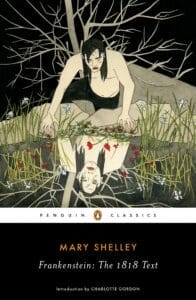Discover your next read among these classics.
The world of classic literature dives deep into painting a picture of recurring themes. It’s often a reflection of historical context that plays a pivotal role in influencing the course of a story. The intricacies behind these tales presented by authors serve as a lens for uncovering concepts that stay relevant and carry messages that resonate with readers today.
From Jane Austen to Charlotte Brontë, discover these captivating classic literature novels that are fuelled in emotion, themes and symbolism that have been studied and analysed for years.
In case you missed it, check out our guide to all the best new books released in 2023 so far.
Add these Classic Literature Novels to your reading list :
1) Persuasion, Jane Austen

Set in England, Persuasion tells the story of rekindled love between Anne Elliot and Captain Fredrick Wentworth. The idea of persuasion is a recurring theme in the novel that sets the scene for multiple occurrences within the plot. It also raises the question of the benefit of being influenced by the worries and guidance of others or remaining strongly rooted in an individual belief. Other themes explored in the novel include social and class status, marriage and gender inequality.
2) The Adventures of Huckleberry Finn, Mark Twain

The Adventures of Huckleberry Finn depicts life in Missouri between the 1830s and 1840s. The tale also explores the prominence and immorality behind slavery in that period. The novel follows the Adventures of Huck, the rough around the edges protagonist, who exposes the hypocrisies of the society he lives in. Huck embarks on the journey of a lifetime with Jim, a runaway slave fleeing to freedom to avoid being sold and separated from his family.
3) Jane Eyre, Charlotte Brontë

A mystery and romance bildungsroman novel, Jane Eyre carries readers through the different phases of Jane’s life. We follow Jane as she navigates love, self-discovery and other obstacles thrown her way while shedding insight into notions of social class, gender roles and spirituality.
4) Frankenstein, Mary Shelley

This chilling and emotional gothic novel delves into the cruxes of science fiction. We dive deep into the story of Victor Frankenstein, a highly skilled scientist whose curiosity quest takes a turn when he brings to life a monster in his scientific pursuits of creating a new human.
5) Nineteen Eighty-Four, George Orwell

A gripping dystopian novel that tackles themes of identity and reality, 1984 follows life in a conceptualised world under the reins of the governing political party’s totalitarian rule. Under the party’s rule, citizens are under constant surveillance and forced to obey and comply with the ideologies of the government. Behind closed doors, the novel’s protagonist Winston Smith, quietly questions and rebels against these beliefs and ideologies in his chase for liberation. Orwell takes readers through Winston’s pursuit of freedom and the havoc that follows in his trial.
6) Little Women, Louisa May Alcott

Another captivating Bildungsroman( or coming of age) novel, Little Women tells the tale of the four ‘March’ sisters and their journey from childhood to womanhood, which reflect and uncover the different elements and details that shape and impact the voyage of growing up.



